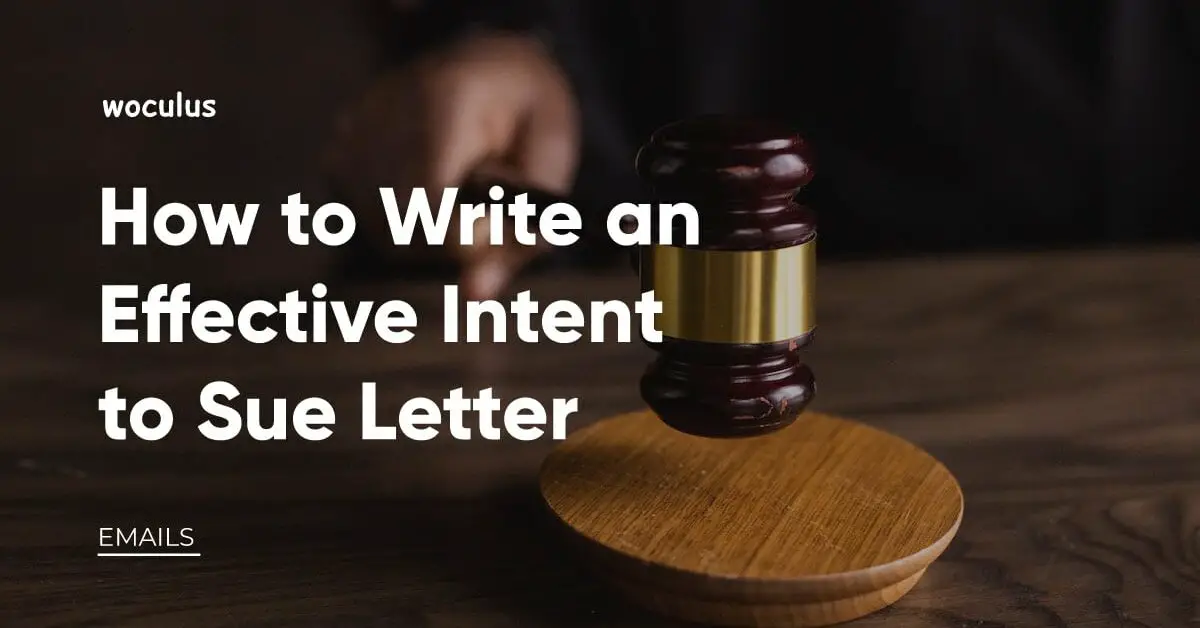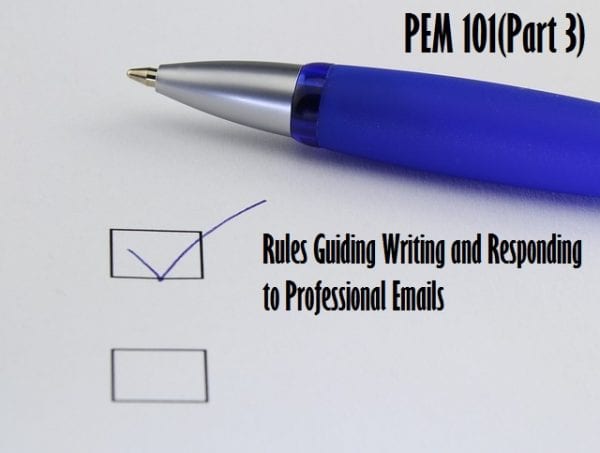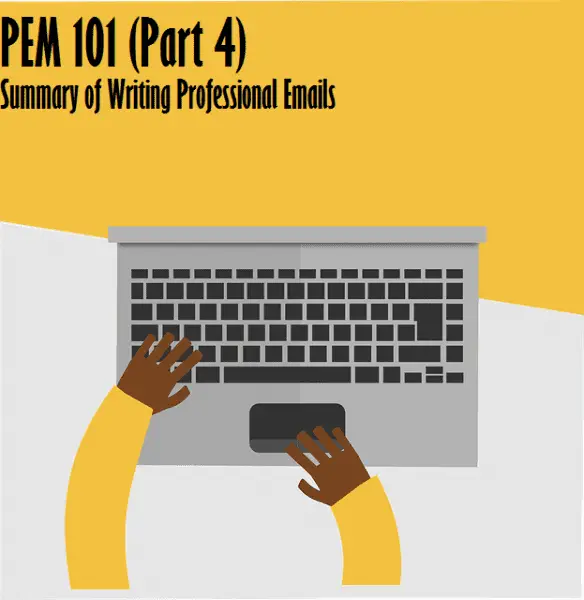Disagreements are bound to occur, and when the opposing party is not willing to come to an amicable resolution, you might have no choice but to take the matter to court. There are many reasons why you can be pushed to file a lawsuit. It could be to get your money back or to solve any tenancy agreement issue. Lawsuits are a good last resort when it comes to conflicts.
Intent-to-sue letters are also called pre-suit notice letters or demand letters. They are statements of a forthcoming defendant about the plaintiff; this could either be an organization or an individual to open a lawsuit in court against them. It is used to inform a defendant that a suit could be filed against them if their preferred demands are not met. The letter is a legal step to declare openly your intention to take the other party, the opposing party, to court to settle the pressing matter. The letter would summarize the alleged illicit act and specify a stipulated time for the opposing party to settle the issue to avoid legal proceedings.
When you deliver a letter of intent to sue, you should know that it will go into the records of the court to prove that there was an attempt to settle the dispute outside of court. It also shares your conditions to begin settlement negotiations and alerts the other party to obtain legal counsel. The letter should include a settlement demand that will give the defendant a certain timeframe. This period should be used to try to reach a mutual agreement between the parties before they enter into legal action, which will take a lot of time and cost. The way of settling disputes might be by curing the defect that is grounds for the suit or paying a certain amount in damages. The intent to sue should also indicate the type of illegal activity that made the prospective plaintiff send the letter.
Key Components of An Intent-To-Sue Letter
When drafting an intent-to-sue letter, you should write in clear, simple language that is relatively easy to understand. It’s important to remember not to include lies or threaten the defendant in the letter. You need the court’s help, so you need to do everything that would put you on the good side of the law.
The intent-to-sue letter has no set provisions or conditions that should be strictly followed. There are, however, some elements of the letter that should not be disregarded. These include;
- Identification of the parties involved: Both parties should be succinctly stated and identified in the letter. The names of the sender and the prospective defendant should be written.
- A clear statement of intent to pursue legal action: You should declare your intention to pursue litigation and settle the pressing issues in court.
- Description of the underlying issue and relevant facts: The Why?, What?, Who?, and How? have to be explained thoroughly here. Illustrate the cause of the matter and how it escalated. Be sure to include facts that are relevant to your legal battle.
- Explanation of damages suffered or rights violated: Since you are demanding settlement and compensation, explain in your letter the number of damages the defendant caused and include the rights they violated.
- Request for specific remedies or resolutions: Because the defendant overstepped their boundaries, you have to be compensated in some way. Add your preferred remedy for this case; it could be monetary or otherwise.
- Deadline for response or action: Give a timeframe for when you need a response, as time works differently in law. State your deadline so the suit can be pursued in court if demands are not met.
How to Write an Effective Intent-to-Sue Letter
An intent-to-sue letter can notify the opposing party that if your demands aren’t met, you might be compelled to pursue the matter further in a court of law. Sending a letter of this sort would notify the defendant of your interest in taking up the disagreements in court. This would show how serious you are about settling the feud and seeking potential prosecution. Letters like this follow a particular format as stated above: a summary of the events, the specific facts related to the scenario, your conditions for resolution, a deadline, and what you plan to do if the demand is unmet.
Different steps should be followed when writing an intent-to-sue letter.
- Researching and understanding relevant laws and regulations: Your letter, no doubt, would have to include relevant legal information. In the notice, the plaintiff should state what law will be considered governing. To avoid complications, do effective research to understand the laws and regulations relevant to your suit. Do not be ashamed. Whenever you feel overwhelmed, seeking legal advice from a professional is best.
- Maintaining a professional and concise tone: The tone of your letter should be the same as that of a formal letter. There is no need for friendliness or sentiments. Keep your voice formal and professional.
- Organizing the letter logically and coherently: Nothing is more off-putting than writing a poorly constructed letter. Make sure the letter is written in the appropriate format so the defendant will take your suit seriously.
- Include supporting documents or evidence, if applicable: To bolster your lawsuit further, you should include any paper trail of evidence in your possession. Do not send out the original copies of said evidence. Make photocopies and attach them to the letter as evidence.
- Seeking legal advice, if necessary: Having a lawyer send the letter is especially helpful when the other party ignores or dismisses your demands, believing there will be zero consequences for their inaction. If you are in doubt, it’s advisable to seek the help of an attorney to avoid making punishable mistakes.
Benefits of Sending an Intent-to-Sue Letter
A lot of promising benefits come from sending an intent-to-sue letter. These letters can be a beneficial tool for settling disputes and accelerating triumphant outcomes.
- Facilitating communication and negotiation
- Demonstrating seriousness and commitment to resolving the matter
- Providing an opportunity for the other party to rectify the situation
- Establishing a paper trail and preserving evidence
- potentially avoiding costly and time-consuming litigation
Intent to Sue Letter to Credit Bureau Example
[Your Name] [Your Address] [City, State, ZIP Code] [Email Address] [Phone Number] [Date] [Credit Bureau Name] [Credit Bureau Address] [City, State, ZIP Code] Re: Intent to Sue for Credit Reporting Inaccuracy Dear [Credit Bureau Name], I am writing to express my extreme dissatisfaction with the manner in which you have handled my credit report. Despite my previous attempts to resolve this matter, I find it necessary to inform you of my intent to pursue legal action if the inaccuracies on my credit report are not addressed promptly. My identifying information is as follows: Full Name: [Your Full Name] Date of Birth: [Your Date of Birth] Social Security Number: [Your SSN] Current Address: [Your Current Address] Previous Address (if applicable): [Your Previous Address] I have enclosed copies of my credit reports from your bureau, highlighting the inaccuracies that have caused considerable harm to my financial standing and creditworthiness. The inaccuracies in question include, but are not limited to: 1. [Describe the first inaccuracy: e.g., Incorrect account information] - Account Name: [Incorrect Account Name] - Account Number: [Incorrect Account Number] - Status: [Incorrect Status] - Balance: [Incorrect Balance] 2. [Describe the second inaccuracy, if applicable] 3. [Describe any additional inaccuracies] I would like to bring to your attention that the inaccuracies mentioned above are in violation of the Fair Credit Reporting Act (FCRA) and have caused significant harm to my financial well-being. I have made multiple attempts to dispute these errors through your online dispute resolution process and have not seen a satisfactory resolution. As a result, I am left with no choice but to consider legal action to address these issues and seek appropriate remedies under the FCRA. I believe that pursuing this course of action is in both our interests, as it can save both time and resources while rectifying the errors on my credit report. I request that you investigate these inaccuracies promptly and provide me with a written response outlining the steps you have taken to rectify them. It is also crucial that you send a corrected copy of my credit report to all entities that have recently received my inaccurate credit report. Please be aware that this letter is a formal notice of my intent to sue if my concerns are not addressed within [reasonable time frame, e.g., 30 days] from the date of this letter. I urge you to take this matter seriously and respond promptly. Failure to address this issue in a timely manner will leave me with no option but to proceed with legal action to protect my rights under the FCRA. I trust that it won't come to this, and we can resolve these inaccuracies amicably. Thank you for your prompt attention to this matter. I look forward to receiving your response. Sincerely, [Your Full Name]
Presuit Letter for Breach of Contract
[Your Name] [Your Address] [City, State, ZIP Code] [Email Address] [Phone Number] [Date] [Recipient's Name] [Recipient's Address] [City, State, ZIP Code] Re: Notice of Breach of Contract Dear [Recipient's Name], I am writing this letter to bring to your attention a matter of significant concern, namely the breach of contract that has occurred between us. This breach pertains to the contract signed on [Date of Contract] for [Brief Description of Contract, e.g., the sale of [Product/Service] under contract number [Contract Number]]. In accordance with the terms and conditions of the aforementioned contract, both parties had certain obligations and responsibilities to fulfill. It has come to my attention that you have failed to meet your obligations as stipulated in the contract in the following manner: [Detail the specific breaches of the contract, including dates, events, or actions that constitute the breach.] Despite my efforts to communicate and resolve this matter amicably, I have not seen any significant progress or a satisfactory response from your end. This breach has caused me financial and other damages as follows: [Explain the impact and consequences of the breach, such as financial losses, delays, or other damages.] I believe in the importance of honoring the commitments made in a contract, and I have a strong desire to resolve this matter without resorting to legal action. However, it is clear that the breach of contract has left me with no alternative but to take legal action to protect my rights and seek the appropriate remedies. I request that you take immediate steps to rectify this breach of contract by [Specify the actions or corrections you expect from the other party, along with a reasonable time frame for compliance, e.g., "fulfilling your obligations within 15 days from the date of this letter"]. I expect you to acknowledge this letter promptly and confirm in writing that you will address the breach and meet your contractual obligations. Failure to rectify this breach and respond within the stipulated time frame will leave me with no choice but to initiate legal proceedings to enforce the terms of the contract and seek appropriate remedies, including but not limited to financial damages and specific performance. I hope that it does not come to that, and we can resolve this matter swiftly and professionally. I am open to discussion and negotiation to reach a mutually satisfactory resolution, and I am willing to consider alternative dispute resolution methods, such as mediation, to avoid protracted legal proceedings. Please be advised that this letter is a formal notice of my intent to pursue legal action if the breach of contract is not addressed within the specified time frame. I strongly urge you to take this matter seriously and respond promptly. Thank you for your immediate attention to this matter. I look forward to your timely response. Sincerely, [Your Full Name] Enclosures: [List any documents or enclosures you include with the letter]
Intent to Sue Letter Debt Collector
[Your Name] [Your Address] [City, State, Zip Code] [Date] [Debt Collector's Name] [Debt Collection Agency Name] [Address] [City, State, Zip Code] Re: Intent to Sue for Violations of the Fair Debt Collection Practices Act (FDCPA) Dear [Debt Collector's Name], I am writing to formally notify you of my intent to file a lawsuit against [Debt Collection Agency Name] for violations of the Fair Debt Collection Practices Act (FDCPA) and any other applicable laws. Your actions and conduct related to the collection of the debt associated with account number [Account Number] have been in violation of my rights as a consumer under the law. Specifically, I believe you have violated the following provisions of the FDCPA: [Specify the alleged violations, e.g., harassment or abusive behavior, false or misleading representations, etc.] I would like to bring to your attention that your collection practices are not only in violation of the FDCPA but have also caused me emotional distress and inconvenience. I have documentation and evidence to support my claims, including [list any evidence or supporting documents you have]. I kindly request that you take immediate action to rectify these violations and cease any further collection activities related to this debt. Failure to address these issues in a satisfactory manner within [a reasonable timeframe, e.g., 30 days] will leave me with no alternative but to initiate legal proceedings against your agency. Please consider this letter as an opportunity to rectify these matters and avoid unnecessary legal action. If you wish to discuss this matter further, please contact me at [your phone number] or via email at [your email address]. I anticipate a prompt and appropriate response to this letter. Failure to do so will leave me with no choice but to pursue legal action to protect my rights under the FDCPA. Sincerely, [Your Name]
Presuit Letter in Small Claims Court Example
[Your Name] [Your Address] [City, State, ZIP Code] [Your Phone Number] [Your Email Address] [Date] [Recipient's Name] [Recipient's Address] [City, State, ZIP Code] Subject: Demand for Payment Dear [Recipient's Name], I hope this letter finds you well. I am writing to address a matter that has arisen concerning the services I provided to you on [Date(s)]. On the aforementioned date(s), I [briefly describe the services you provided], as detailed in our [contract/agreement], a copy of which is enclosed for your reference. The agreed-upon compensation for these services was [Agreed Amount], as per the terms of our agreement. Regrettably, as of the date of this letter, I have not received payment for the services rendered, despite [the invoice(s) sent/other reminders provided]. It has now been [Number of Days] days since the payment was due. I kindly request that you remit the outstanding balance of [Total Amount Due] within [Number of Days] days from the date of this letter to avoid any further legal action. If payment is not received within this timeframe, I will have no choice but to initiate legal proceedings in small claims court to recover the amount owed, as well as any additional costs and fees associated with the legal action. You may contact me at [Your Phone Number] or [Your Email Address] to discuss this matter further or to arrange for the payment. I am willing to work with you to resolve this issue amicably. I hope we can resolve this matter without resorting to legal action. However, I am committed to pursuing the payment owed to me. Sincerely, [Your Signature] [Your Printed Name]
Intent to Sue Letter Medical Malprratice Sample
[Your Name] [Your Address] [City, State, ZIP Code] [Date] [Recipient's Name] [Medical Provider's Name] [Address of the Medical Provider] [City, State, ZIP Code] Subject: Intent to Sue for Medical Malpractice Dear [Recipient's Name], I am writing this letter to formally notify you of my intent to file a lawsuit against [Medical Provider's Name] for alleged medical malpractice that occurred on [Date of the incident]. This letter serves as a preliminary step to initiating legal proceedings. The purpose of this letter is to provide you with an opportunity to address and potentially resolve the matter before legal action becomes necessary. I believe that the following instances of medical malpractice took place during my treatment: [Briefly describe the first instance of alleged malpractice.] [Briefly describe the second instance of alleged malpractice.] [Briefly describe any additional instances of alleged malpractice.] These alleged instances of medical malpractice have caused me significant physical, emotional, and financial hardship. I am seeking compensation for my damages, which may include medical bills, lost income, pain and suffering, and other related expenses. I kindly request that you: Acknowledge receipt of this letter within [reasonable time frame] days. Initiate an internal investigation into the alleged medical malpractice. If necessary, consult with your legal counsel to discuss the possibility of a resolution outside of court. Please understand that I am committed to pursuing this matter to protect my rights and seek fair compensation for the harm I have suffered. I hope we can resolve this matter amicably and avoid protracted litigation. If I do not receive a response or if attempts at resolution are unsuccessful, I will proceed with filing a formal lawsuit in the appropriate court. I believe that a fair and just resolution can be reached without the need for legal action. To ensure that my rights are protected and that we can potentially resolve this matter amicably, please contact me at [your phone number] or [your email address] to discuss this further. Sincerely, [Your Name]
Intent to Sue Letter for Defamation Example
[Your Name] [Your Address] [City, State, Zip Code] [Date] [Defendant's Name] [Defendant's Address] [City, State, Zip Code] Re: Notice of Intent to Sue for Defamation Dear [Defendant's Name], I am writing to inform you of my serious concerns regarding statements you have made about me, which I believe constitute defamation. It has come to my attention that you have made false and damaging statements about me, both verbally and in written form, and have disseminated these statements to third parties. These false statements have had a negative impact on my reputation, causing me significant harm both personally and professionally. Defamation is a serious legal matter, and it is my belief that your statements meet the criteria for defamation under [your jurisdiction's defamation laws]. The false statements include [provide a brief description of the defamatory statements], and they have caused me harm in the following ways: [list specific ways in which you have been harmed, such as damage to your reputation, financial losses, or emotional distress]. I kindly request that you immediately: Cease and desist from making any further false and defamatory statements about me, whether orally or in writing. Retract the false statements you have made, both verbally and in writing, and issue a formal written apology for the harm caused. Confirm in writing within [reasonable timeframe, e.g., 10 days] that you will comply with these demands. Failure to comply with these demands will leave me with no choice but to pursue legal action to protect my rights and seek remedies for the damages I have suffered. I hope to resolve this matter amicably and avoid litigation, but I am prepared to take legal action if necessary. Please be aware that this letter serves as notice of my intent to sue for defamation if the above requests are not met within the specified timeframe. I encourage you to seek legal counsel to better understand the seriousness of this matter and the potential legal consequences. Sincerely, [Your Signature] [Your Name] [Your Contact Information]
Intent to Sue Letter for Personal Injury Example
[Your Name] [Your Address] [Your City, State, Zip Code] [Your Phone Number] [Your Email Address] [Date] [Name of Defendant] [Address of Defendant] [City, State, Zip Code] RE: Intent to Sue for Personal Injury Dear [Name of Defendant], This letter serves as formal notice that I, [Your Name], intend to file a lawsuit against you for personal injury sustained on [date] at [location] as a result of your negligence. On that date, I was [describe what you were doing] when you [describe what the defendant did or failed to do that caused your injury]. As a result of your negligence, I suffered the following injuries: [List of injuries] My injuries have caused me significant pain and suffering, both physical and emotional. I have also incurred medical expenses and lost wages as a result of my injury. I am demanding that you pay me the following damages: [Amount of damages] If you do not comply with my demands within [number] days of receiving this letter, I will file a lawsuit against you in [name of court]. Please contact me at [your phone number] or [your email address] to discuss this matter further. Sincerely, [Your Name]
Conclusion
A letter of intent to sue is usually a single-page letter. It is important to present the letter respectfully. Include the important details that are relevant to your case, like the illegal activity, steps that can help settle the controversy, and ways to cover damage to avoid the lawsuit. Setting up a dispute legally is not a piece of cake, but following the right steps would reduce the complexities of a lawsuit.






